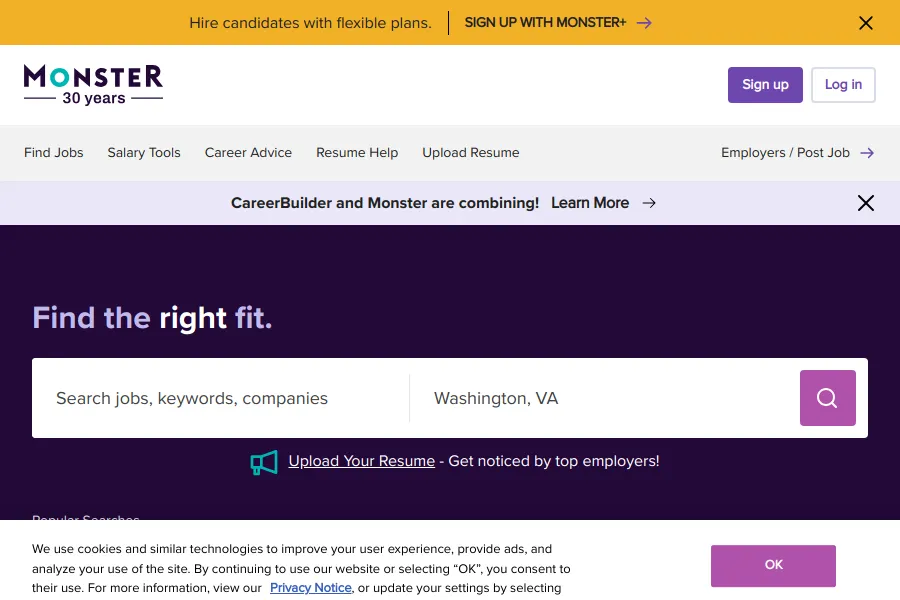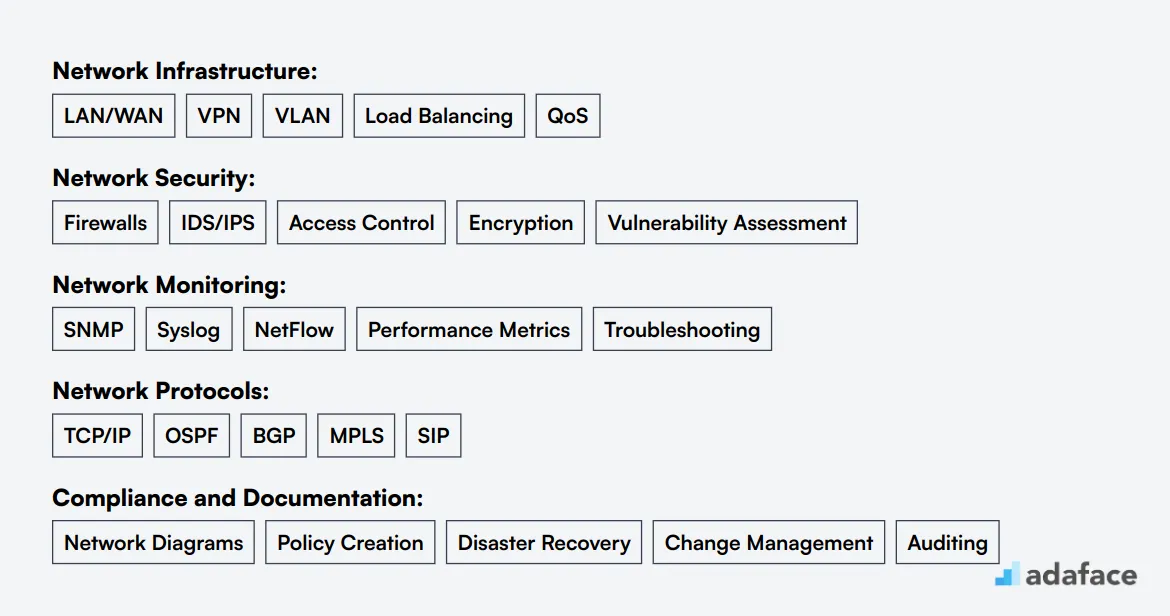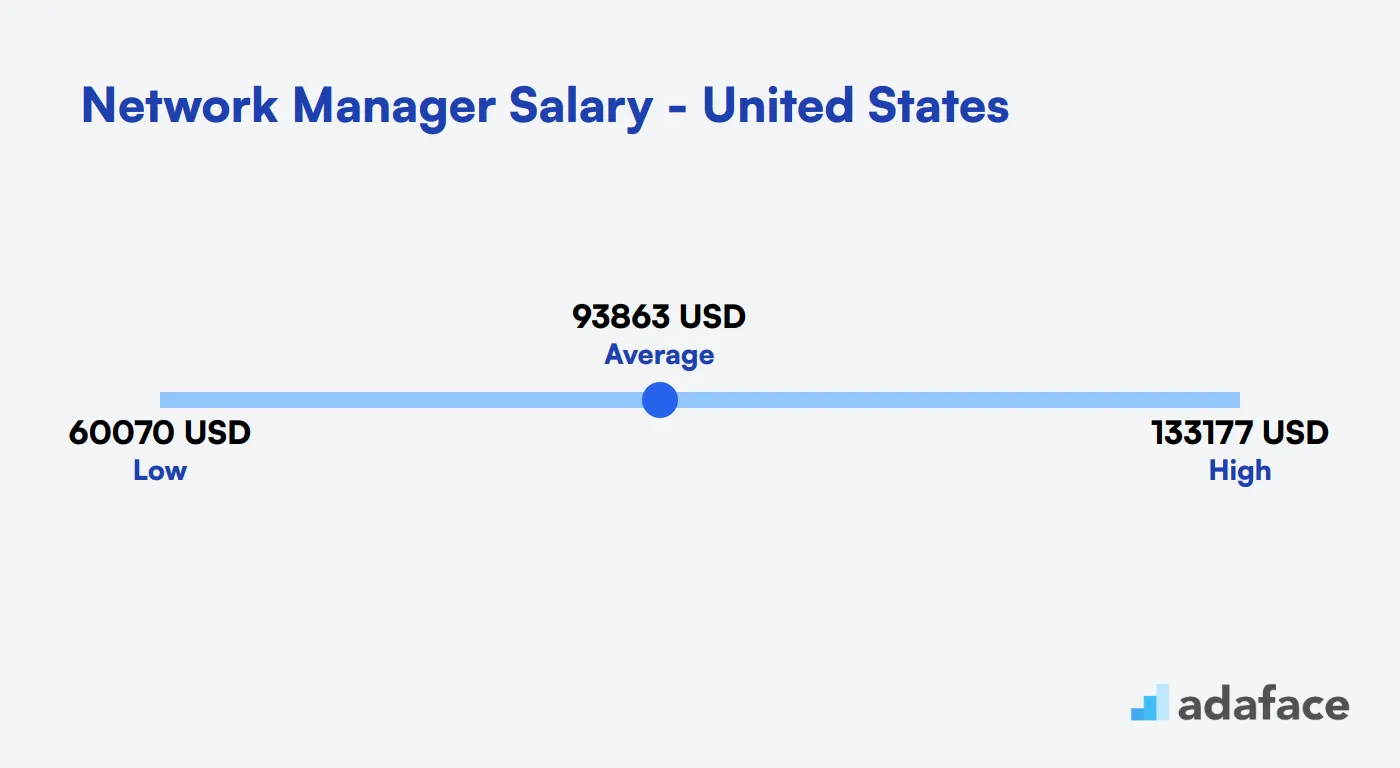In today's digitally driven landscape, having a competent Network Manager on board is paramount for maintaining your company's IT infrastructure. However, many organizations struggle to pinpoint the right candidate due to a lack of understanding of the distinct skills and qualifications required for this role. Network Managers not only need to possess technical expertise but also strategic planning capabilities and excellent problem-solving skills.
This article guides you through the Network Manager hiring process, highlighting the crucial skills and qualifications to identify, recommended platforms for finding candidates, keywords to notice in resumes, and effective ways to structure interviews. We also delve into cost considerations and provide actionable insights to help you hire the ideal Network Manager. For more detailed job descriptions, check out our Network Manager Job Description page.
Table of contents
Network Manager Hiring Process
The hiring process for a Network Manager typically takes around 4 to 6 weeks. Here’s a streamlined overview of the steps involved.
- Create a detailed job description: Start by crafting a clear and concise job description that outlines the responsibilities and qualifications. This will guide your search and help attract suitable candidates.
- Post the job: Share the job listing on relevant platforms and your company's career page. You can expect to start receiving applications within a few days.
- Shortlist candidates: After reviewing resumes, shortlist candidates based on their experience and skills. This phase may take about a week.
- Conduct skill assessments: Move to practical assessments or case studies to evaluate candidates' technical expertise. This step may also take up to a week, depending on the complexity of the assessment.
- Interview selected candidates: Schedule interviews with the shortlisted candidates. Focus on their problem-solving capabilities and experience with networking technologies.
- Make an offer: Once you identify the best candidate, extend a job offer and negotiate terms if necessary.
Overall, the hiring process can span from 4 to 6 weeks, depending on the efficiency of each stage. Now, let’s explore these steps in detail to ensure a successful hiring experience.
Skills and qualifications to look for in a Network Manager
When hiring a Network Manager, it can be tricky to determine the precise balance between technical expertise and management skills needed for the role. A common mistake is not clearly differentiating between the skills that are required and those that are just preferred. Drawing this line will help you avoid being overwhelmed by an avalanche of resumes and fine-tune your search.
To start with, focus on the absolute must-haves like a Bachelor's degree in a related field and a deep understanding of network protocols and hardware. Additionally, look for experience in network administration and security tools. For more nuanced skills, relevant certifications or experience with cloud networking can be very attractive.
A comprehensive skills assessment can assist in evaluating the candidates' capabilities effectively. You might want to explore various skills assessment tools to streamline this process and ensure you are making data-driven hiring decisions.
| Required skills and qualifications | Preferred skills and qualifications |
|---|---|
| Bachelor's degree in Computer Science, Information Technology, or related field | Relevant industry certifications (CCNA, CCNP, CompTIA Network+) |
| 5+ years of experience in network administration and management | Experience with cloud networking (AWS, Azure, GCP) |
| Strong knowledge of network protocols (TCP/IP, DHCP, DNS, SMTP, etc.) | Knowledge of scripting languages (Python, PowerShell, Bash) |
| Proficiency in configuring and maintaining network hardware (routers, switches, firewalls) | Familiarity with virtualization technologies (VMware, Hyper-V) |
| Experience with network monitoring and security tools | Experience with ITIL framework and best practices |
Best Platforms to Find Network Managers
Once you've crafted a compelling job description for a Network Manager, the next step is to make it visible on the right job listing platforms. These platforms will help you source qualified candidates who match the skills and experience you’re looking for in a Network Manager.
LinkedIn is ideal for recruiting full-time Network Managers due to its extensive professional network and industry-specific groups.

Indeed
Indeed offers a wide reach for various job types, including full-time, part-time, and freelance positions, with powerful search capabilities.

Monster
Monster specializes in full-time roles, providing a robust platform to post job descriptions and target qualified candidates.

While the first three platforms offer a broad reach and diverse candidate pools, there are several other excellent options as well. LinkedIn connects you with professionals seeking full-time roles, whereas Indeed and Monster provide powerful search features for all job types, especially full-time positions. For remote and freelance needs, Upwork, Remote.co, and FlexJobs are tailored solutions. If your focus is on tech-specific hires, Dice is a specialized platform that ensures you find candidates with the necessary technical expertise. For more insights on effectively assessing your candidates, consider exploring our skills assessment tools.
Keywords to Look for in Network Manager Resumes
Resume screening is a key step in hiring Network Managers. It helps you quickly identify candidates with the right skills and experience before moving to interviews.

When manually screening resumes, focus on primary keywords like network protocols, security management, and infrastructure experience. Look for specific technologies like TCP/IP, firewalls, and LAN/WAN configurations.
AI tools can streamline resume screening. Use large language models with custom prompts to analyze resumes against your job requirements. This can save time and improve consistency in your screening process.
Here's a sample prompt for AI-assisted resume screening:
TASK: Screen resumes for Network Manager role
INPUT: Resumes
OUTPUT: For each resume, provide:
- Name
- Matching keywords
- Score (out of 10)
- Recommendation
- Shortlist (Yes/No/Maybe)
KEYWORDS:
- Network protocols (TCP/IP, DHCP, DNS)
- Security (firewalls, IDS/IPS, encryption)
- Infrastructure (routers, switches, LAN/WAN)
- Monitoring tools (SNMP, NetFlow)
- Cloud networking (AWS, Azure, GCP)
- [Certifications](https://www.adaface.com/assessment-test/cisco-routing-switching-online-test) (CCNA, CCNP, CompTIA Network+)
Recommended Skills Tests to Screen Network Managers
When hiring a Network Manager, skills tests are recommended to ensure candidates have the necessary technical abilities and management skills. These tests provide an objective way to evaluate their proficiency in specific areas relevant to the role. Here are some suggested tests to consider:
Network Engineer Test: This test assesses candidates on various network engineering topics such as routing, switching, and network troubleshooting. It is ideal for determining if a candidate can manage and maintain a complex network infrastructure.
Cisco Routing and Switching Test: Designed to evaluate a candidate's ability to work with Cisco devices, this test focuses on routing and switching concepts. It helps ensure the candidate is familiar with Cisco's networking solutions, which are widely used in the industry.
Advanced Networking in AWS Test: For organizations utilizing AWS, this test is essential for evaluating a candidate's knowledge of AWS-specific networking services and configurations. It helps determine if they can integrate and manage AWS networking within your infrastructure.
Advanced Networking in Azure Test: Similar to the AWS test but tailored for Microsoft Azure, this test assesses a candidate's abilities to navigate and implement Azure networking solutions. It's crucial for companies leveraging Azure's cloud services.
Advanced Networking in GCP Test: This test evaluates expertise in Google Cloud Platform's networking capabilities. It's perfect for identifying candidates who can efficiently manage and optimize GCP environments within a cloud-based network strategy.
How to Structure Interviews for Network Manager Roles
After candidates successfully pass the skills tests, it's time to move them to the technical interviews. This stage is important because while skills tests filter out unfit candidates, they don't identify the best fit for the role. The technical interview provides an opportunity to evaluate the candidate's hard skills in real-world scenarios and determine if they possess the competencies needed to manage your network effectively.
Here are some example interview questions to consider: 1. Can you explain a complex network issue you resolved? This gauges problem-solving and technical understanding. 2. How do you handle network outages? Understanding their crisis management can be very telling. 3. What tools do you prefer for network monitoring and why? This can reveal familiarity with industry-standard tools. 4. How do you stay updated with current networking technologies? Continuous learning is important in IT. 5. What is your experience with Cisco Networking? Since it's widely used, experience here can be highly beneficial.
How much does it cost to hire a Network Manager?
Hiring a Network Manager can vary widely in cost depending on location and experience. In the United States, the average salary is about $93,864 per year, but it can start as low as $60,070 for entry-level roles and go up to $133,177 or more for seasoned professionals. Geographic differences are notable, with cities like Stafford, VA offering salaries up to $175,278, whereas places like Miami Beach, FL might offer starting figures around $57,058.
Network Manager Salary in the United States
The average salary for a Network Manager in the United States is approximately $93,864 per year. Salaries typically range from $60,070 for entry-level positions to $133,177 for more experienced managers. Geographic location significantly affects compensation, with cities like Stafford, VA, offering salaries up to $175,278, while places like Miami Beach, FL, see starting figures around $57,058.

Hire the Best Network Managers
Throughout this blog post, we've explored the Network Manager hiring process from identifying necessary skills and qualifications, to structuring interviews, and understanding costs involved. Our goal has been to equip recruiters and hiring managers with the knowledge needed to attract and select the right talent for their organization's network management needs.
The key takeaway is to ensure that your hiring strategy includes clear job descriptions and relevant skill assessments to find the most qualified candidates. Utilizing tools like the Network Engineer Test can aid in accurately evaluating candidates' technical expertise. Remember, finding the right person for the job starts with using the right tools and strategies.
Network Engineer Online Test
FAQs
A Network Manager should typically possess a bachelor's degree in computer science, IT, or a related field. Certifications like Cisco's CCNA or CCNP, or CompTIA Network+ can be beneficial. Relevant experience in network design and implementation is also crucial.
Platforms like LinkedIn, Indeed, and specialized IT job boards such as Dice are excellent for finding Network Managers. Additionally, platforms like Adaface can help in remote hiring processes.
Look for keywords such as network architecture, troubleshooting, network protocols like TCP/IP, and experience with specific hardware or software relevant to your needs. Highlight any leadership or project management experience.
Utilize skills tests like the Network Engineer Test or specific tests for technologies like AWS, Azure, or Cisco offered by Adaface.
Focus on questions about their experience with network security, handling network outages, and their approach to network design. Consider checking out our Network Manager Interview Questions for more ideas.
Challenges include identifying candidates with both the technical and managerial skills needed for the role, and ensuring they fit into company culture. The competitive nature of the tech industry may also make it difficult to attract top talent.

40 min skill tests.
No trick questions.
Accurate shortlisting.
We make it easy for you to find the best candidates in your pipeline with a 40 min skills test.
Try for freeRelated posts
Free resources



